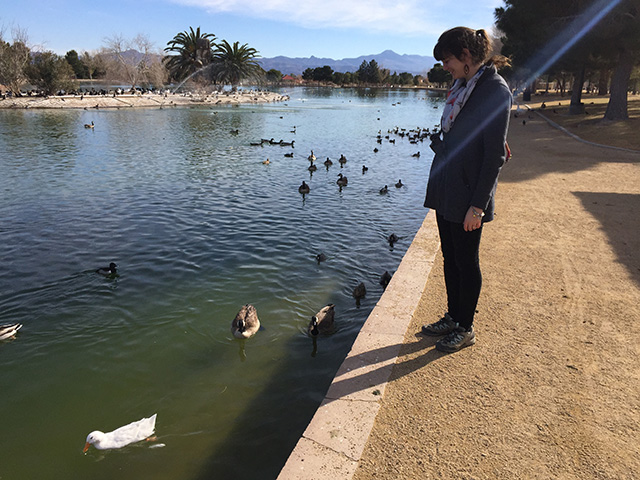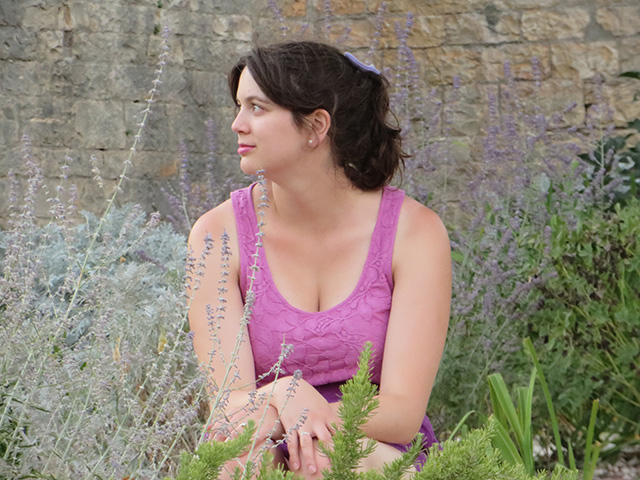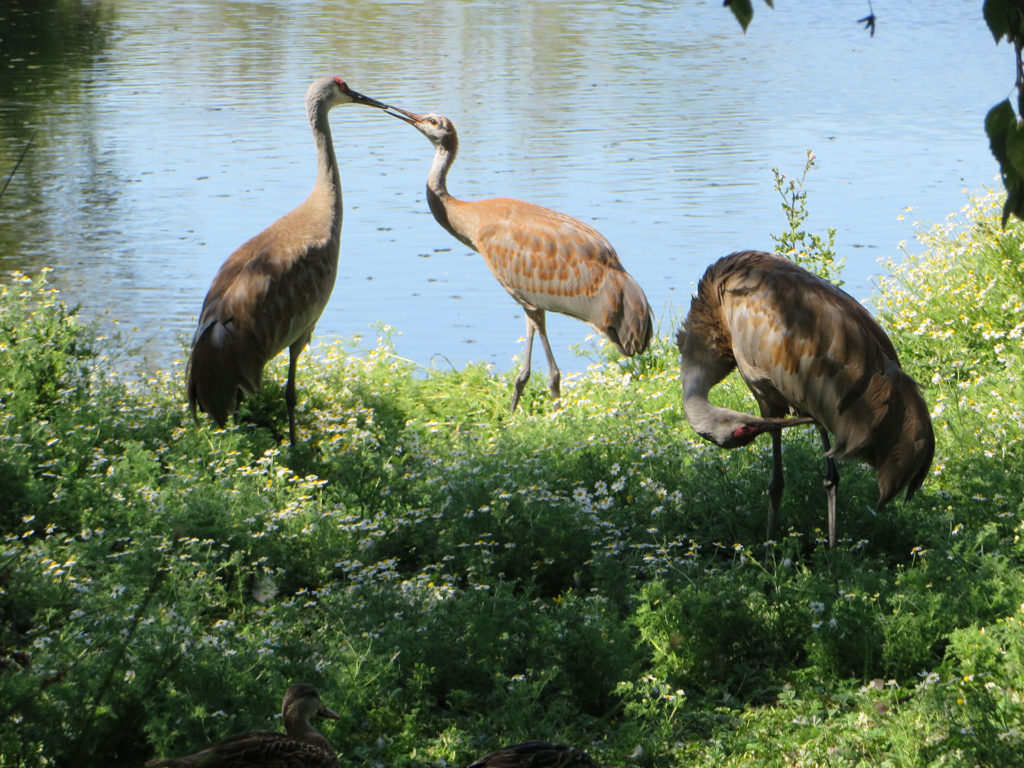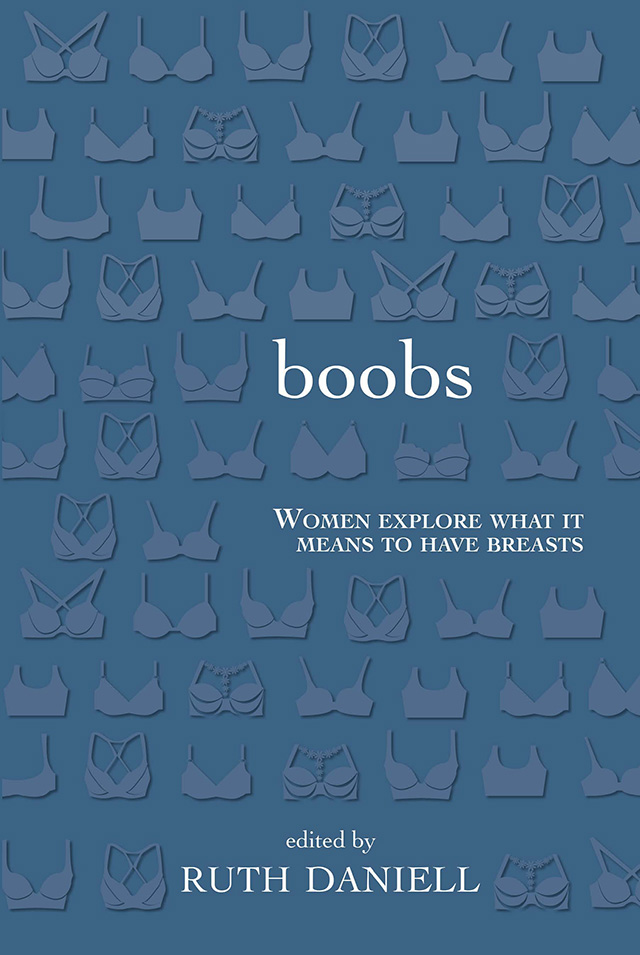Memory, Desire, and the Aural Imagination
Ruth Daniell won TNQ‘s 2016 Nick Blatchford Occasional Verse Contest for “Wedding Anniversary,” published in Issue #140: In Appreciation of Our Spots. Paid subscribers can read the winning piece here.
I’ve been reading Eleanor Wachtel’s latest collection of interviews. She says one of her favourite questions for opening up a conversation is “What’s your earliest memory?” Are you game?
My earliest memory is of being allowed to feed my little brother his dinner. He was probably barely one year old, and I was two and a half or three. He was sitting in what I can only think to describe as a low high-chair, just my height, in our family’s kitchen, which back then had a floral-patterned linoleum tile floor. I spooned the mush in the general direction of his mouth, but I was laughing so hard that my arm was noodly, and as my brother was laughing just as hard it would have been impossible for him to swallow safely. Most of the food got on his cheeks, which only made us laugh harder. I remember being proud that I was deemed responsible enough to help give my brother his dinner and also being delighted that we were allowed to make such a mess. The entire endeavour was supervised by my mother, who I’m sure came in afterwards to see that my giggly brother didn’t go to sleep still hungry.
That’s funny, my earliest memory also involves my younger brother, though it’s not at all joyful. I must have been about five, my brother two. I had been sent from the table for some disgrace I no longer remember and was slumped in the hallway, crying out my shame and anger. My brother nerved himself to follow me and crouched down beside me in solidarity, but I was so mad at the world I told him to go away. He did, and then I felt wracked by regret. I wonder what that says about our respective personalities! How about your earliest writing-related memory?
My earliest writing-related memory is composing a poem about a bat who was looking for the perfect hat. I thought it was brilliant.
I’m sure it was. You have what reads like the perfect education for a poet, poetry being such an oral/aural art: a BA in English Literature from the University of Victoria, an MFA in Creative Writing from the University of British Columbia, degrees in speech performance from Trinity College London and the Royal Conservatory of Music in Toronto plus years spent teaching what you call “speech arts” yourself. Can you say something about how this educational path fuelled, or was fuelled by, your love of poetry and perhaps mention some of the poems/poets you’ve always felt played particularly well to the ear?

Tough question! I’ll try not to tell my entire life story. My education definitely fuelled and was fuelled by my love of poetry. It started very early for me. I always loved reading—my mother loves books and spent her entire career working for my hometown’s library—and my parents put me in speech arts classes when I was, I think, seven years old. Until I graduated from high school and moved away from home, I competed annually in the Prince George Speech Arts and Drama Festival. Some of my fellow students were aspiring actors and although I liked what I learned from acting, I was always more drawn to the performance of poetry. I already knew—from TV and plays—that people would come together to watch other people perform drama. It was empowering to me to know that dozens of individuals would also spend the time to memorize and perform poems, and that others would come to listen. This really fuelled my love of poetry, I think, so rarely did my nerdy interests align with those of my peers. This experience emphasized for me, early on, that poetry is meant to be shared, and—most importantly—shared aloud. That aural awareness definitely shaped the kind of poetry that I loved, and still love, and that I try to write.
Happily, those early experiences of reading and performing poetry also exposed me to a wide range of poems, contemporary as well as traditional. It gave me the idea that people are still writing poems, and that I could be one of them. (Speaking of “traditional” poetry, Shakespeare’s sonnets still stand out to me, aesthetically and acoustically, as among the finest.) If my early speech arts education helped fuel my love of poetry, my love of poetry is what motivated me to pursue further education in poetry, literature, and performance. When I was a teenager I was lucky enough to have a couple of especially kind mentors who urged me to take my writing seriously, which is how come I ended up applying to the University of Victoria. I was delighted when I took my first poetry workshop at UVic and discovered that each workshop began with a poet reading his or her own work aloud to the class.
If I’m going to mention Canadian poets whose work plays particularly well to the ear, I must include Dennis Lee, who of course writes wonderful poetry for adults as well, but whose lyric voice and gift for nonsense first influenced me through his children’s poetry. I teach his title poem from Alligator Pie to all my youngest students, who unanimously love it.

What made you think to submit your prize-winning occasional poem, “Wedding Anniversary” to TNQ? We rely on contests to put the magazine in front of new readers, but we hope there’s also something in it for our writers.
I submitted to TNQ because the contest is unique in its focus and celebration of the occasional poem. I feel like most poems, for me, begin with an occasion in my own life, whether that occasion stays overtly in the poem or not. There is a lot of good poetry that experiments outside of the lyric-narrative mode but I suspect that even those poems have an inciting incident, an occasion that plants the seed from which the poem grows. I am fierce about the distinction between speaker and poet but I also appreciate the honesty of the acknowledgement that at some point someone had to write the poem and they had to have a reason—whether that reason was they spilled their coffee on their new pants, heard something interesting on the radio, saw a child lose a balloon in the park, fell into or out of love, or anything else ordinary or marvellous.
I’ve had occasion to read “Wedding Anniversary” to an audience several times now. It never fails to captivate, and yet it eschews many of the more obvious poetic conventions: the meter sometimes falls into iambic pentameter but more often the cadence is disrupted, and there’s no use of rhyme, either end rhyme or internal. However, there’s lots of alliteration (“and so we laugh suddenly when seven of them / stroll towards us, dust and gold and glow”) and even more assonance and consonance (“you might / see them through the hinged slats overlooking the marsh, / hush, hush. Through the discontinuities of wood / light slips in, feathery—“). And then there’s the use of figurative language, which I’ll return to. Can you say something about your poetic process and how the aural strategies used here served your purposes?
My process is mostly intuitive, especially when it comes to sound, but that doesn’t mean it’s not intentional. I usually attend to the imagery of the poem, first, and then sit back and listen. I read my poems aloud a lot during composition, and I can usually hear if something is not working—so then I fiddle with it until it sounds right. I believe that in order for the image to “look” right in the mind of the reader it should also sound right to the reader’s ear.
In “Wedding Anniversary” I was aiming to capture a sense of wonder, trepidation, and that feeling of almost-magical silence, so the repetition of the “sh” sound, for example, helped to serve that effect. And have you noticed that time seems to slow down during pivotal moments? Well, if we’re talking about aural strategies—it’s pretty hard to make a long vowel sound short. I wanted to help evoke that surreal slowing down of time: the repetition of the long vowels, the long “o” sound as the Sandhill Cranes appear—“stroll,” “gold,” “glow”—helps to slow the poem down.
I love working in rhyme (remember the bat and the hat) but it wouldn’t have worked for this poem. The sound devices needed to be a bit more submerged to mimic the apprehension and quietness of the “spell” that the speaker imagines. The couple of the poem is making a decision together, but that decision takes place on an unspoken level, really; rhyme would have felt obvious, instead of secretive and unsure.

As to the figurative language, we understood how the idea that a couple might have conceived a child in a blind prepares for what the poem has to say about the leap of faith required to embark on parenthood. But why (we have our theories but I want to hear from you!) did you settle on Sandhill Cranes as the bird to best represent the choice made?
Because Sandhill Cranes have such elaborate, beguiling mating rituals. Because (like many of the birds that romantic humans most revere) they mate for life. Because they are fiercely protective parents. Because of their long, rich calls. Because they are beautiful and big and formidable. And because one year my husband and I really did see Sandhill Cranes together on our wedding anniversary.
 You use the phrase “their uncommon bodies” to describe the cranes (“sure-headed mystics adorned with nuptial red”). That puts me in mind of another of your projects, one you both conceived and edited: the anthology Boobs: Women Explore What It Means to Have Breasts. The publisher (Caitlin Press) describes it thus: “At turns heartbreaking and hilarious, Boobs is a diverse collection of stories about the burdens, expectations and pleasures of having breasts. From the agony of puberty and angst of adolescence to the anxiety of aging, these stories and poems go beyond the usual images of breasts found in fashion magazines and movie posters, instead offering dynamic and honest portraits of desire, acceptance and the desire for acceptance.” I like that last pairing. Can you tell us something of how that anthology came together, of the way the poems and stories (essays too?), as they came in, surprised or unsettled you?
You use the phrase “their uncommon bodies” to describe the cranes (“sure-headed mystics adorned with nuptial red”). That puts me in mind of another of your projects, one you both conceived and edited: the anthology Boobs: Women Explore What It Means to Have Breasts. The publisher (Caitlin Press) describes it thus: “At turns heartbreaking and hilarious, Boobs is a diverse collection of stories about the burdens, expectations and pleasures of having breasts. From the agony of puberty and angst of adolescence to the anxiety of aging, these stories and poems go beyond the usual images of breasts found in fashion magazines and movie posters, instead offering dynamic and honest portraits of desire, acceptance and the desire for acceptance.” I like that last pairing. Can you tell us something of how that anthology came together, of the way the poems and stories (essays too?), as they came in, surprised or unsettled you?
I like the idea of desire, acceptance, and the desire for acceptance, too. I’m hopeful it is resonant for the readers of the anthology. The anthology came together joyfully, I think: I’m still astounded at how privileged I was to be trusted with such stunning poems and stories and essays. I was surprised and honoured to witness so much strength, so much resilience, and so much love. Many of the poems and stories in the book revolve around experiences of loss, abuse, shame, fear, and just, in general, some really tough stuff—but the over-arching theme of the book is moving through those feelings towards forgiveness and self-love. That theme of self-love and acceptance is not one I had to curate into existence; it emerged organically through the voices of the writers who were brave and generous enough to send me their work. It was also unsettling the way that writers were able to identify defining moments—occasions, if you like!—and make them come alive for the reader. In one of the memoir pieces, a writer describes what it was like to be idly watching a movie home alone and feeling a lump in her breast. In another, a woman notices a hole in her sock on the day she’s gone to the hospital for nipple reconstruction surgery. In another, a woman notices the way the sun slants down on her breastfeeding sister and that small moment helps to shift her perspective on her own body. In yet another piece, a woman recalls how she almost had to do the “pencil test” at a slumber party in junior high and reflects on how she’d allowed that moment to define into adulthood her relationship to her breasts.
Because I was lucky enough to receive work from writers of such diverse life experiences—different ages, orientations, colours and backgrounds, including both sides of the gender binary—perhaps what surprised me the most was how much all the stories had in common and yet how clearly each writer recognized and accepted the uniqueness of her or his/their own body.
Going from boobs back to birds, I think you said that you are at work on a series of poems which use birds as a central metaphor. Can you say something about that project and how you came to it?
Yes, I’m working on a full-length collection of poetry that centers around birds. It combines mythological and biological explorations of birds alongside a personal narrative about a couple trying to have a baby. The poems seek consolation through the shared desires of humans and animals, especially reproductive desire.
I came to the project accidentally. I was working on another project that focuses on fairy tales and how we use stories to cope with the difficulties of finding and keeping love, and during the writing and research for that project I kept on encountering birds, which are common and significant figures in fairy tales and in human storytelling culture more generally. Just think of the raven of Haida myth and the dove from Judeo-Christian biblical stories. Or Cinderella’s helpers and Hans Christian Andersen’s The Ugly Duckling and the stories attributed to Mother Goose! Or the pervasive folk belief that storks deliver babies to new parents. Birds have been particularly linked to human ideas about marital happiness, fertility, and family life, not to mention spiritual life. It gradually became apparent to me that my bird poems were a part of a new project that needed my attention, and the interest in fairy tale and mythological birds expanded into a curiosity about the history and biology of birds, too. My writing process now involves a lot of time outside with binoculars and good hiking shoes.
Barb Carter, TNQ’s Lead Poetry Editor, expressed her delight at how deftly you resist overstating the poem’s ending. Can you say something about your use of restraint, understatement, suggestion here or elsewhere in your poetic oeuvre or in your teaching?
Oh, wow, you must know how especially reassuring it is to receive feedback like that about my ending. Thank you. Restraint is something I’m constantly having to think about in my poetry, as someone whose work approaches the subjects most prone to sentimentality. I don’t know quite what to say about my “use of restraint” except that it probably arises out of an unrelenting awareness that, at heart, I’m a big romantic sap.
Top photo by flickr user Great Sand Dunes National Park and Preserve

